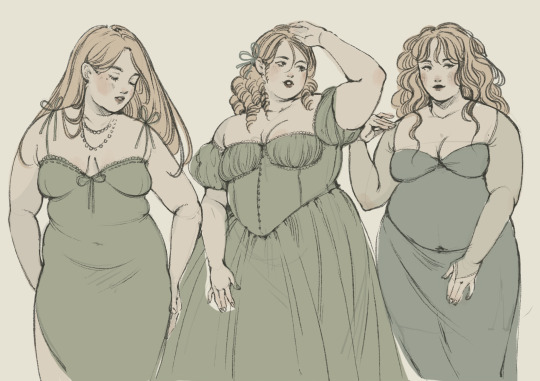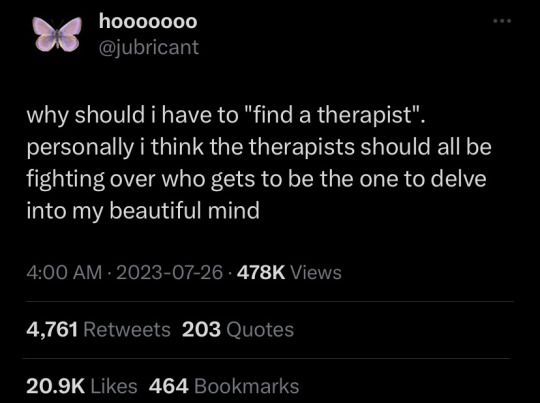Text
7K notes
·
View notes
Text
sorry for how I acted when there were multiple noises happening at the same time
102K notes
·
View notes
Text
ok last thing. but what people fundamentally need to get through their heads is the significance of gaza fundraisers not being the same as like mutual aid when you're helping someone get groceries, because it is a genocide. there is insane deliberate scarcity and prices are unmanageable, because there is nowhere nearly enough for everyone, so only people who can pay can eat. and what positioning individual fundraisers as the only course of action does is quite simply give a tiny percentage of random people whose fundraisers take off the ability to pay those prices while thousands of others can't. and every one of those thousands of people without a fundraiser is suffering through the same inconceivably horrific reality. it is giving a few completely desperate people out of hundreds of thousands a slightly more favorable position in a horrific war economy of imposed scarcity. and what grassroots community kitchens do is try to mitigate in some small way that inconceivable hierarchy of who can pay and who can't, by stretching ingredients as far as they can last to cook meals at large scale and give them out at no cost. and obviously people are still going to send money to their friends and families because this is hell what else are we supposed to do but please just think about that before promoting endless individual fundraisers as somehow the most ethical way to help
30K notes
·
View notes
Note
Why do you make everything gay/trans?
why do i wake up in the morning and enjoy the sun on my face the fresh air in my lungs. why do i wonder at the intricacies of nature when i wander among trees. why do i delight in the colors of moss and the muffling qualities of loam like snow. why does my heart alight at the sound of rain, the weight of a storm. why do i smile at the sight of squirrels and birds and gasp at the glimpse of deer or elk. why do i roam. why do i open myself to all that can be known. why do i feel warmth in the presence of friends and curiosity in the presence of strangers. why do i tend gardens and visit oceans. why do i persist in pushing this aching body forward, day after day. why do i live
2K notes
·
View notes
Text
constantly at work and in my own kitchen i am saying ah... my mise! it must be placed! i must mise my place! i forgot to place my mise! and other things of this nature. forgot to measure my butter... alack! my place, it was not properly mised you see
19 notes
·
View notes
Text

babe, we have guests coming, get the good china
9K notes
·
View notes
Text
apologies to anyone who ever thought i was cool and reached out to me only to discover i am just a weird little hermit who can't carry on a conversation to save my life
51K notes
·
View notes
Text
"Once thought to be extinct, black-footed ferrets are the only ferret native to North America, and are making a comeback, thanks to the tireless efforts of conservationists.
Captive breeding, habitat restoration, and wildlife reintegration have all played a major role in bringing populations into the hundreds after near total extinction.
But one other key development has been genetic cloning.
In April [2024], the United States Fish and Wildlife Service announced the cloning of two black-footed ferrets from preserved tissue samples, the second and third ferret clones in history, following the birth of the first clone in December 2020.
Cloning is a tactic to preserve the health of species, as all living black-footed ferrets come from just seven wild-caught descendants. This means their genetic diversity is extremely limited and opens them up to greater risks of disease and genetic abnormalities.
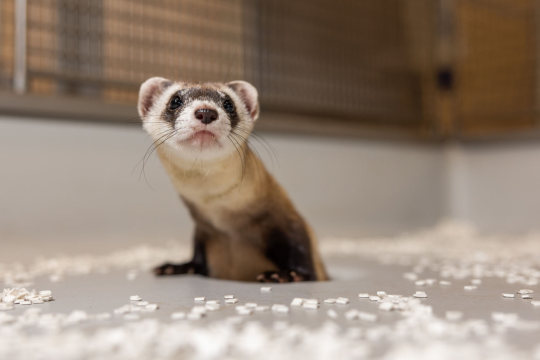
Now, a new breakthrough has been made.
Antonia, a black-footed ferret cloned from the DNA of a ferret that lived in the 1980s has successfully birthed two healthy kits of her own: Sibert and Red Cloud.
These babies mark the first successful live births from a cloned endangered species — and is a milestone for the country’s ferret recovery program.
The kits are now three months old, and mother Antonia is helping to raise them — and expand their gene pool.
In fact, Antonia’s offspring have three times the genetic diversity of any other living ferrets that have come from the original seven ancestors.
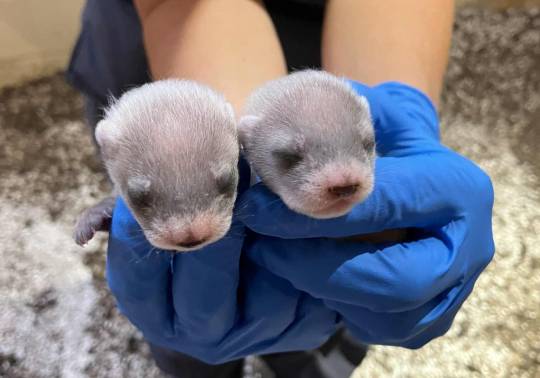
Researchers believe that expanded genetic diversity could help grow the ferrets’ population and help prime them to recover from ongoing diseases that have been massively detrimental to the species, including sylvatic plague and canine distemper.
“The successful breeding and subsequent birth of Antonia's kits marks a major milestone in endangered species conservation,” said Paul Marinari, senior curator at the Smithsonian’s National Zoo and Conservation Biology Institute.
“The many partners in the Black-footed Ferret Recovery Program continue their innovative and inspirational efforts to save this species and be a model for other conservation programs across the globe.”
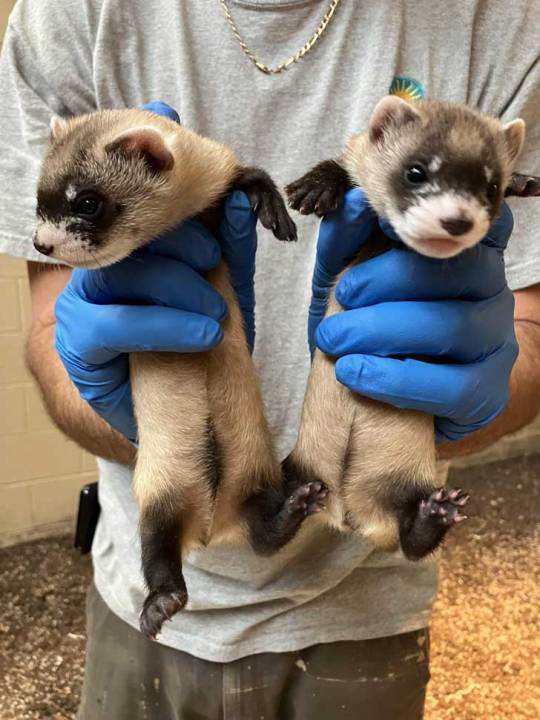
Antonia actually gave birth to three kits, after mating with Urchin, a 3-year-old male ferret. One of the three kits passed away shortly after birth, but one male and one female are in good health and meeting developmental milestones, according to the Smithsonian.
Mom and babies will remain at the facility for further research, with no plans to release them into the wild.
According to the Colorado Sun, another cloned ferret, Noreen, is also a potential mom in the cloning-breeding program. The original cloned ferret, Elizabeth Ann, is doing well at the recovery program in Colorado, but does not have the capabilities to breed.
Antonia, who was cloned using the DNA of a black-footed ferret named Willa, has now solidified Willa’s place as the eighth founding ancestor of all current living ferrets.
“By doing this, we’ve actually added an eighth founder,” said Tina Jackson, black-footed ferret recovery coordinator for the U.S. Fish and Wildlife Service, in an interview with the Colorado Sun.
“And in some ways that may not sound like a lot, but in this genetic world, that is huge.”
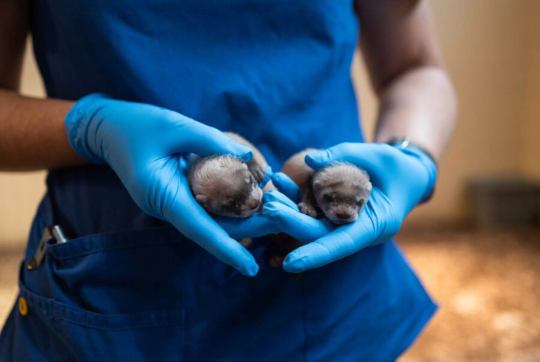
Along with the USFWS and Smithsonian, conservation organization Revive & Restore has also enabled the use of biotechnologies in conservation practice. Co-founder and executive director Ryan Phelan is thrilled to welcome these two new kits to the black-footed ferret family.
“For the first time, we can definitively say that cloning contributed meaningful genetic variation back into a breeding population,” he said in a statement.
“As these kits move forward in the breeding program, the impact of this work will multiply, building a more robust and resilient population over time.”"
-via GoodGoodGood, November 4, 2024
8K notes
·
View notes
Text
american leftists seem extremely focused on anti imperialism (good) but rarely- if at all- discuss decolonization in their own fucking country, despite acknowledging that it is a settler colonial state.
88K notes
·
View notes
Text
I notice the instinct in myself to find someone to blame. Someone who this can all be neatly pinned on, to direct all the anger towards. But not only does that person not exist, it's a dangerous impulse, and one that makes it too tempting to turn against the people who are our allies, who are suffering too. Other leftists are not the enemy. Third party voters are not the enemy. Even the worst most ignorant trump voter is not really the enemy. The only useful place to put our blame and rage and discontent is with the system that allowed this to happen, that continues to reward ignorance and cowardice and violence and the expansion of empire. It has to stop. It needs to stop. And we need to keep each other in our hearts and sustain our communities while we fight the only enemy that matters
14 notes
·
View notes
Text
I would say vote if you can tomorrow and then no matter who wins, get involved in your local community.
5K notes
·
View notes
